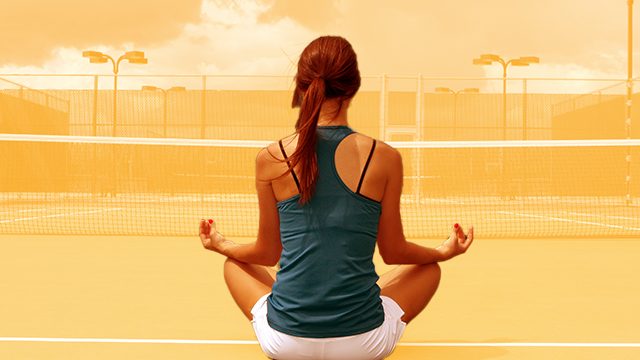SUMMARY
This is AI generated summarization, which may have errors. For context, always refer to the full article.


MANILA, Philippines – Many athletes face a lot of stress and anxiety amid the uncertainty in the world of sports.
Due to the coronavirus lockdown, these mental challenges escalated – from the difficulty of not getting to train, to the shock cancellation or postponement of virtually all sporting events, including the Olympics, to the worrying possibility that there may be no sports until the end of the year.
In the first part of this sports mental health series, Rappler talks to mental skills coach and sports psychology consultant Marcus Manalo, who works with athletes from the Philippine national boxing and bowling teams, Premier Volleyball League squad Motolite, and the Lyceum of the Philippines University basketball team.
What challenges do athletes face? Uncertainty is the most common cause of stress and anxiety of athletes, according to Manalo.
The Philippine Sports Commission (PSC) canceled all scheduled tournaments this year because no sporting events can be held under the general community quarantine guidelines.
The country’s major leagues like the UAAP and PBA are also expected to follow government rules as well.
Although the Tokyo Olympics have been rescheduled to July 2021, there are still talks of canceling the quadrennial meet altogether if the pandemic persists until the following year. This becomes a mental challenge for both qualified athletes and Olympic hopefuls.
Right before the lockdown was enforced, Eumir Marcial and Irish Magno were the latest additions to the Philippines’ Tokyo 2020 Olympics delegation after they qualified in the Asia and Oceania Olympic qualifier in Jordan.
But the uncertainties brought about by the lockdown have specifically affected Marcial as he is tempted to turn pro instead of fulfilling his promise of competing in the biggest global sports showpiece. (READ: Turning pro? Eumir Marcial to make final decision after ABAP meeting)
The sports psychology consultant also added that lately, athletes and coaches are having issues with allowances and job security.
“There are a lot of athletes who are breadwinners in their families, then all of a sudden: ‘What’s going to happen? And how will I be able to keep providing for myself and for my family?,'” shared Manalo.
“And even for collegiate athletes, there have been reports on budget cuts in athletic departments, there are college teams that are cutting sports, and even coaches [face] termination of contracts and scholarships.”
Manalo also pointed out that most Filipino athletes have strong athletic identities, meaning that they define most of their self-worth with their achievements and activities in sports.
“They really see themselves as athletes, like that’s a big part of who they are. Then all of a sudden they’re quite far from their identity, they’re not able to to be who they are, basically, since they’re away from training or were away from their sports,” explained Manalo.
What is mindfulness? Most of Manalo’s mental techniques revolve around the idea of mindfulness.
Mindfulness is a state where you’re aware of an experience. This includes being in the present and focusing on things that you can control in order to react in a better way.
“The name of the game in terms of sports is really to be mindful – to be able to recognize your thoughts and emotions, and then try to always see the positive side, regardless of what’s going on,” said Manalo, who teaches mindfulness during training and competition.
But instead of developing mental toughness during games, athletes are now dealing with a lot of uncertainty that can also be regulated through mindfulness practices.
For Manalo, it’s easier said than done as this is a practice athletes need to keep going back to as mindfulness brings benefits that show how powerful perspective can be.
How do you create this ‘space’? Mindfulness creates a space where you are able to focus on things you can control.
According to Manalo, one has to first validate their feelings. Instead of escaping and suppressing negative thoughts and emotions, athletes should recognize that what they’re feeling can also be controlled.
“When you’re mindful, when you’re being aware, you recognize more that: ‘Yes, there’s a lot of uncertainty, there’s anxiety, yes, there’s frustration’ and all those things, but the same time, [you wait because] with this space, the feelings are there, I’m still able to choose how I’m going to respond,” explained Manalo.
“So instead of empowering those thoughts and feelings, they’re actually empowering yourself in terms of how you’re gonna respond to what’s going on or how you are going to respond to a particular thought or a feeling.”
Because the future stresses athletes out, Manalo provides athletes with a day-to-day exercise to help them develop a perspective of the present situation.
“I tell the athletes to have this guide of asking themselves of: ‘What can I do today that will take me one step closer to my goals?,” said Manalo.
“At least on a daily basis, you can still do something that will be able to help you. It could be you know, just looking at videos, reviewing your techniques, and it could be reading a book that can help you – even just 10 pages a day – do some some sort of workout that can help you at least maintain your physical conditioning.”
“So it’s more of just approaching it again on a daily basis because it becomes more realistic.”
Practices such as meditation, breathing and yoga also facilitate the development of mindfulness, and the results were seen with the Phil Jackson-coached Chicago Bulls as he incorporated these practices to strengthen the team.
“When you’re doing it, you’re actually there and your mind doesn’t have time to wander or worry or to go to the past or go to the future, it’s just for appreciation of what’s right here right now,” explained Manalo.
But Manalo warns that it is not a one-time thing, but a process that has to be properly taught and practiced.
“Meditation is not simple to teach. It’s not just breathing. Relaxation is a by-product of it. Your target and objective is you train your mind to be in the present.” – Rappler.com
Add a comment
How does this make you feel?

There are no comments yet. Add your comment to start the conversation.